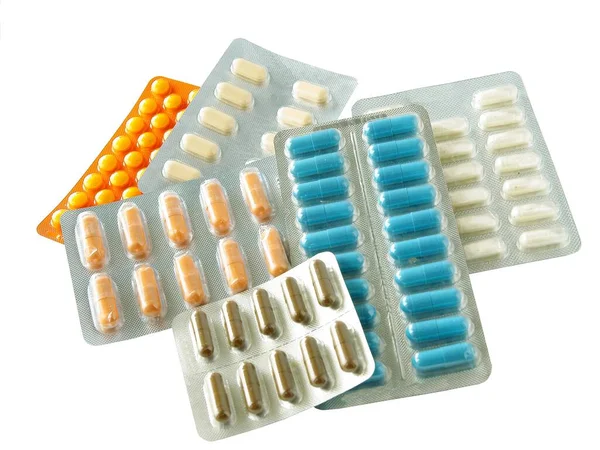When it comes to herpes treatment, Acyclovir is the prominent name for the treatment of herpes infections. Acyclovir belongs to the antiviral class of drugs particularly designated to fight viral infections. The medication is extensively used for the treatment of herpes viruses including genital herpes, shingles, cold sores and chickenpox.
In females, when they feel pain, itchiness and discomfort in their intimate area sometimes, it’s difficult to understand whether it is herpes infection or yeast infection as the symptoms and discomfort are quite the same. In this blog we are going to discuss the Acyclovir and link between Acyclovir and yeast infections so keep reading below.

Before we dive into the association between Acyclovir and yeast infection let’s understand the difference between genital herpes and yeast infections.
What Is Genital Herpes?
Genital herpes is an STD (sexually transmitted disease) that is caused by herpes simplex virus or HSV. Genital herpes can be caused by two virus strains herpes simplex virus 1 and herpes simplex virus 2 (HSV1 and HSV2). These are the same viruses that also cause oral herpes or cold sores.
Diagnosis of Genital Herpes
Herpes can be diagnosed with a blood test or genetic material from a swab of the genital area. Herpes can be clinically diagnosed without these tests for patients with a history of herpes simplex virus infection who have a recurrent outbreak.
What Is a Yeast Infection?
The yeast infection is a vaginal infection caused by overgrowth of a type of fungi called Candida. A small amount of that fungi is normal in the vaginal area but too much amount leads to unpleasant symptoms.
Diagnosis of Yeast Infection
A swab is taken from the vaginal discharge and tested under the microscope for visible signs of the yeast. A PCR that determines the existence of yeast is the most accurate test for these infections.
Symptoms of Genital Herpes in Females
A study was performed to monitor more than 3000 women with genital herpes. Most of these women tested positive for herpes virus infections but they never experienced any symptoms. Having mild or no symptoms is quite common in herpes and even many sexually transmitted infections.
Women with visible symptoms of genital herpes experienced pain with urination, redness, itching, burning sensation and lesions on the skin. Patients exposed to herpes virus usually experience these symptoms on and off. Many patients report their initial outbreak as the most severe and the longest while future outbreaks are shorter and with milder symptoms.
Herpes infections can also cause symptoms in other body parts such as swollen glands, fever and headaches. There was no considerable difference in the symptoms experienced by patients with HSV1 or HSV2 infections.
Herpes vs. Yeast Infection: Symptom Differences
Yeast infection symptoms include itching in the vagina and vulva, soreness, redness, white vaginal discharge, pain when you pee or during sex. Some patients may have a red or scaly rash.
Sometimes the skin irritation caused by a yeast infection can be misunderstood for herpes sores which is why these two infections appear to be similar. If you are experiencing abnormal vaginal discharge or smell, that indicates vaginal infection, not herpes.
Usually, a yeast infection does not cause blisters, red bumps or lesions on the skin. Fever and swollen glands are not common symptoms of yeast infection. The best way to know about which infection you are suffering from is to get tested.
What Causes Yeast Infections?
Various factors can trigger the yeast infections. Some of the most common causes that lead to yeast infections include
Antibiotics
Long-term use of antibiotics reduces the amount of Lactobacillus, the good bacteria in the vagina. The reduction in advantageous bacteria allows yeast overgrowth.
Hormonal Fluctuations
Hormonal imbalances that occur near the menstrual cycle or pregnancy can upset the natural balance of vaginal microorganisms. This imbalance allows the yeast cells to multiply rapidly.
Weakened Immune System
People with weakened immune systems who are suffering from HIV or receiving chemotherapy are at high risk of developing a yeast infection. A compromised immune system may not be able to regulate the growth of candida bacteria effectively.
Diabetes
Unmanaged and uncontrolled diabetes encourages yeast growth particularly when blood sugar levels are constantly high. Raised glucose levels in bodily fluids offer a favourable environment for yeast overgrowth.
Antibiotics and Steroids Misuse
Excessive or long-term use of antibiotics and steroids can upset the natural balance of microorganisms in the vagina which leads to yeast infections.
Is Acyclovir Associated with Yeast Infections?
Yeast infections are common affecting millions of people globally. Acyclovir is a medication that is commonly used to treat viral infections and is usually well tolerated. However, some patients may assume that the use of this medication causes yeast infection as a side effect. Is it true or not? Let’s talk about that.
Does Acyclovir Cause Yeast Infections?

Well, Acyclovir does not cause yeast infections directly. If you acquire yeast infection while using Acyclovir or other antivirals that may be a coincidence or because of other factors such as weakened immune systems, hormonal imbalances or antibiotics use. Scientific evidence does not support the direct association between Acyclovir use and a yeast infection.
Acyclovir does not have any such properties that directly impact the growth or excessive growth of Candida albicans. To date, no research states that Acyclovir use can directly cause yeast infections. However, every individual responds to medications differently and there are always possible chances of individual reactions.
Things You Should Know About Acyclovir?
Acyclovir is an antiviral medication that is available on prescription only. It is used to treat or prevent infections caused by Herpes Simplex Virus. These infections include genital herpes and cold sores. Acyclovir is also prescribed to treat shingles and chickenpox as the virus causes these from the herpes family.
Usually, Acyclovir is available in the form of tablets and it also comes in the form of capsules, oral suspension, cream and an injection. Acyclovir injections are administered by medical professionals only.
Acyclovir is among the most popular treatments for genital herpes in the UK. It is not the complete cure for herpes infection however it effectively prevents the virus growth and suppresses symptoms treating the outbraeks. Acyclovir also helps prevent recurrent outbreaks.
How Does Acyclovir Work Against Viral Infections?
Acyclovir effectively targets viral infections caused by herpes simplex virus. Particularly it is used to treat genital herpes outbreaks.
Genital herpes is a common sexually transmitted infection in the UK. Like most sexually transmitted infections herpes infection is highly transmittable and can be easily spread by direct contact with the affected areas. It transmits from one person to another through sexual contact including oral sex, anal sex and vaginal sex.
Acyclovir antiviral drug is widely used to treat herpes infection. It works by targeting the enzyme that is required for the growth and replication of herpes virus. By preventing the production of this particular enzyme the virus is not able to reproduce and cause more blisters. As a result, the immune system can fight the existing viruses and treat the outbreak clearing the symptoms of cold sores and genital herpes.
Is Acyclovir Effective?
Yes, Acyclovir is an extremely effective treatment for infections caused by herpes simplex virus. Make sure you take the Acyclovir medication precisely as suggested by your healthcare provider or pharmacist.
Acyclovir works best and fights viral infection better when the level of this medication in the body is kept at a constant level. Thus, it is essential to stick to the prescription instructions and take this drug at evenly spaced intervals.
Other Conditions Treated With Acyclovir
Acyclovir is also prescribed to treat other infections caused by the virus from the herpes family such as shingles, cold sores, chickenpox and thrust.
Acyclovir for Shingles Treatment
Shingles is a painful infection caused by varicella zoster the same virus that causes chickenpox. Anyone can acquire this condition but it is most commonly reported in elderly patients. Acyclovir is prescribed for treating shingles as it decreases the severity and shortens the length of the infection.
Acyclovir for Cold Sores Treatment
Acyclovir cream is the first-line treatment for recurrent outbreaks of cold sores. Topical Acyclovir cream can be applied directly to the cold sores. For some patients, Acyclovir tablets may be more effective than the topical cream. Usually, tablets are prescribed for severe cold sore outbreaks.
Acyclovir for Chickenpox Treatment
Usually, chickenpox gets better within a week. Your doctor may prescribe you other medicines for fever or pain relief. For certain patients, Acyclovir is prescribed to prevent complications. Start taking Valacyclovir or Acyclovir immediately as you notice the first signs of chickenpox. It may not be as effective if you start taking after 24 hours after the onset of symptoms.
Acyclovir for Thrush Treatment
Acyclovir is a viral medication prescribed to treat viral infections. Thrush is a fungal infection which means Acyclovir is not a suitable treatment and will not improve the symptoms of thrush.
Precautions You Must Take While Taking Acyclovir

When you are taking Acyclovir treatment you should follow these precautions to ensure better treatment and to prevent transmission. Always stick to the directions given on the prescription label for maximum outcomes of medication and to avoid the occurrence of side effects.
- Take this medicine for the prescribed duration even if you notice improved symptoms after a few doses. Stopping the medicine before the prescribed period may allow the infection to come back.
- Make sure you start taking Acyclovir as you see the first signs of symptoms such as burning, tingling and development of blisters.
- If you missed a dose of Acyclovir, take it as soon as you remember about the missed dose. If you remember about the missed dose when it is time for the next dose, skip the missed one and continue with the next dose.
- Herpes infections are highly contagious infections. Even if you are under Acyclovir treatment you can still transmit the infection to other people.
- Avoid touching the infected areas and then other parts of your body such as your eyes because it can enable the spread of infection.
- Use proper protection (latex condom) or avoid sexual activity or intimate contact with your partner to prevent the transmission of infection.
- Frequently wash your hands with water and soap to reduce the risk of spreading infection to others.
Precautions for Managing Yeast Infections
Practice good hygiene in the genital area. Keep the area clean and dry. Do not use harsh soaps or feminine hygiene products as they can upset the natural balance of microorganisms existing in the genital area.
Wear breathable and loose-fitting clothes. Avoid wearing tight clothing to promote airflow and discourage your overgrowth.
Incorporate probiotic foods or supplements into your routine. It encourages a healthy balance of microorganisms in the body including genital areas.
Practice safe sex using condoms to reduce the risk of infection transmission, and Practice food and sexual hygiene to maintain a healthy environment in the vaginal area.
Acyclovir Side Effects
Serious side effects of this drug are rare. Patients with kidney disease are at higher risk of experiencing side effects. Common side effects include vomiting, nausea, diarrhoea, headache and mild weakness. Severe side effects include behaviour changes, confusion, intense fatigue, seizures and hives. Call your doctor immediately and get immediate medical help if you experience any serious side effects after taking this medicine.
Concluding Words
No evidence suggests a direct relationship between Acyclovir use and yeast infections. Any medicine that upsets the body’s natural balance can increase the risk of yeast infections. Always maintain good hygiene, have safe sex and wear breathable undergarments to avoid yeast infections.
If you acquire yeast infection talk to your doctor for proper diagnosis and treatment. Always consult your healthcare provider for personalized medical advice concerning your particular condition.
Frequently Asked Questions About Acyclovir and Yeast Infections
Can acyclovir cause yeast infections?
No, acyclovir does not directly cause yeast infections. There is no scientific evidence linking acyclovir use to an increased risk of yeast infections. Yeast infections are typically caused by an overgrowth of Candida, often triggered by antibiotics, hormonal changes, or a weakened immune system.
What are the common side effects of acyclovir?
Common side effects of acyclovir include nausea, headache, diarrhea, and dizziness. Serious side effects are rare but can include allergic reactions or kidney issues. Always consult your doctor if you experience unusual symptoms.
How can I tell the difference between a herpes outbreak and a yeast infection?
Herpes outbreaks usually cause painful blisters or sores, often accompanied by itching and sometimes fever. Yeast infections typically cause intense itching, redness, and a thick, white vaginal discharge without blisters. If you are unsure, consult a healthcare professional for diagnosis.
Can taking antibiotics with acyclovir increase my risk of yeast infections?
Yes, taking antibiotics can disrupt the natural balance of bacteria in your body, which may increase your risk of developing a yeast infection. Acyclovir itself does not have this effect, but the combination with antibiotics can make yeast infections more likely.
What should I do if I develop a yeast infection while taking acyclovir?
If you develop symptoms of a yeast infection while taking acyclovir, contact your healthcare provider. They may recommend antifungal treatment and can help determine if your symptoms are related to your medication or another underlying cause.
